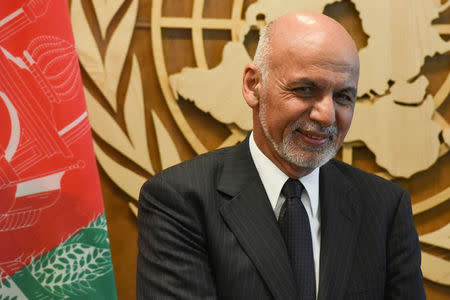Afghan president thinks most foreign troops can leave "within four years" - BBC

KABUL (Reuters) - Afghan President Ashraf Ghani said he believes most foreign troops will be able to leave "within four years", even as he praised U.S. President Donald Trump's recent plan to keep forces in the country indefinitely. Most U.S. and coalition troops withdrew at the end of 2014, after which Afghan troops struggled to contain resurgent Taliban militants and a nascent Islamic State presence. Foreign troops have since returned to providing more support for Afghan forces and in August Trump announced a plan that will send thousands of additional U.S. and allied troops to advise and assist the Afghans, including by providing more air strikes. "Within four years, we think our security forces would be able to do the constitutional thing, which is the claim of legitimate monopoly of power," Ghani told the BBC in response to a question about when he thinks NATO troops can withdraw. He nevertheless praised Trump's decision to base U.S. troop levels on "conditions on the ground and not arbitrary timetables". In 2016, NATO and coalition countries committed to funding Afghan security forces until at least 2020 to the tune of more than $4 billion per year. At a hearing before the U.S. Senate's Armed Services Committee on Tuesday, senior military leaders said they foresaw a long commitment to Afghanistan. "Certainly we may have advisers there ten years from now," Defense Secretary Jim Mattis said. General Joseph Dunford, chairman of the join chiefs of staff, said "there is no time horizon" for the international military presence. "We're not winning and it's at a stalemate," he told lawmakers. "That's my assessment of where we are right now. We're not at a point where we can bring a successful political conclusion to the war." (Writing by Josh Smith; Editing by Nick Macfie)

